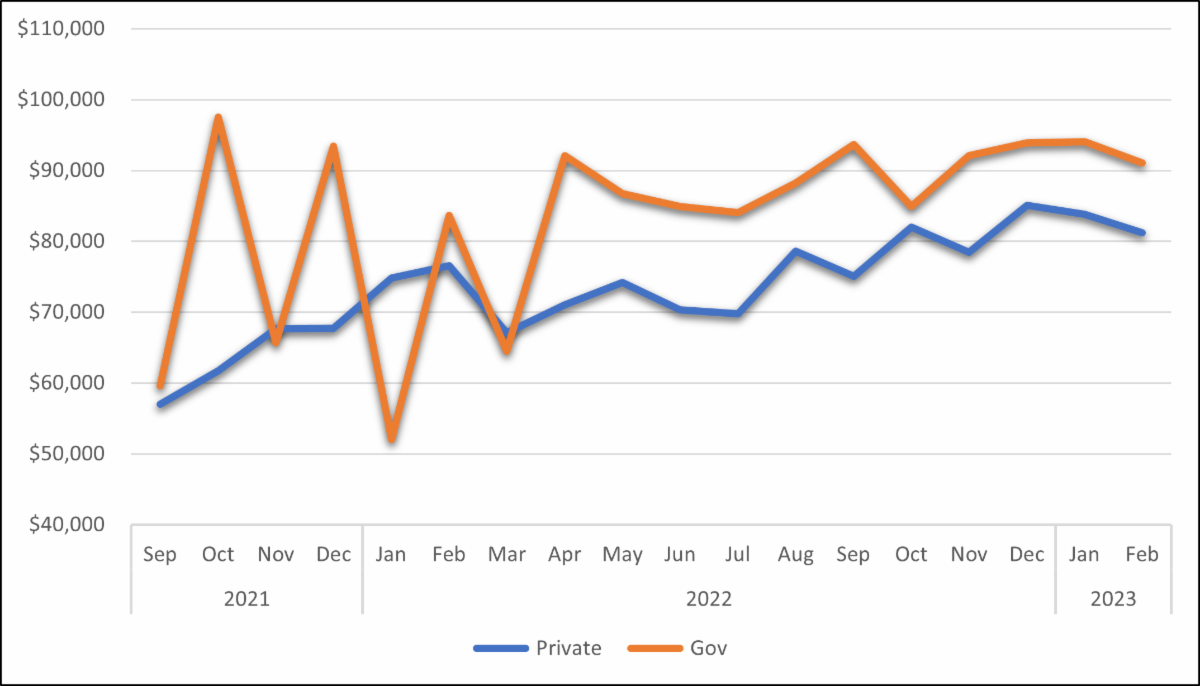Cultural Resource Management Field Schools
Center for Field Sciences

In comments made in SAA newsletters, papers published by various scholars and data from government and private agencies, the future of archaeology, at least in the near and medium terms, is shifting towards CRM. Hundreds of positions are published daily and rewarding careers are awaiting those who pursue this path.

Figure 1: Students learning to measure and document road cuts at the summer 2022 US (IL) Kampsville CRM field school (Source: Center for Field Sciences©)
As of the January 2023 Twin Cairns Intelligence Unit Job Report, entry level CRM tech salaries start at $22.64 per hour and may reach $30.00 per hour in the West and Southeast of the country. Archaeologists with a MA/MS degree and 3-5 years of work experience can master impressive salaries; an average of $75,000/year in the private sector and $83,000 in the public sector (Fig. 2).
Many positions pay much higher salaries, up to $172,000 per year in the private sector (PI position published by Michael Baker International on Nov 1, 2022; here) or $164,102 in the government sector (position published by the Federal Energy Regulatory Commission on Dec 7, 2022; here).

| Figure 2: Average PM/PI annual gross salary, private & government sectors (Source: Twin Cairns Intelligence Unit) |
To best prepare for a rewarding CRM career, CFS is offering dedicated CRM field schools. Our US (IL) Kampsville field schools (two sessions this year) focus on elements that matter most to CRM positions: survey, documentation, compliance and stake holder consultation. Students also learn how to do shovel testing, small scale excavation and the use of GPS and Total Station.
To emulate a full CRM project cycle, the final task for students in this program must complete a report, including the use of GIS and federal and state regulations, so they may understand why specific actions are taken in the field and how they are translated to official reports filed with government agencies.
Our US (CA) Zooarchaeology field school is operating within the Los Angeles Natural History Museum (the third largest such institution in the U.S.) and prepare students for zooarchaeological lab work. The increased amount of CRM activity will produce vast amounts of animal bones and the need for Zooarchaeologists at all levels is dramatically increasing to analyze, study and compile reports of such findings.
Christopher Dore (Heritage Business International) frequently writes about the cyclical nature of the CRM industry and the need to prepare for downturns that always take place. Contemporary CRM is experiencing unprecedented growth due to huge government infrastructure investment, shift to alternative energy sources and global warming (the need to bury miles of powerlines to avoid future fires)(Fig 3). But demand will come down and many CRM professionals may lose their jobs. How to best prepare for this downturn cycle?

Figure 3: Average annual number of CRM jobs posted on the leading CRM Job Boards, 2000-Present (Source: Twin Cairns Intelligence Unit)
| We believe that quality and merit matter. Those who would be best prepared, those who would have great training, will be in favorable position to retain their jobs and advance in their careers even in a down cycle. Unlike academia, where positions are usually lifetime employment, the CRM industry is sensitive and does react to market demands. CRM professionals, like their peers in the larger economy, must learn how best to manage risk. [1] Positions reviewed on March 10, 2023 on the SAA Career Page |
Posted: March 15, 2023, 12:58 PM